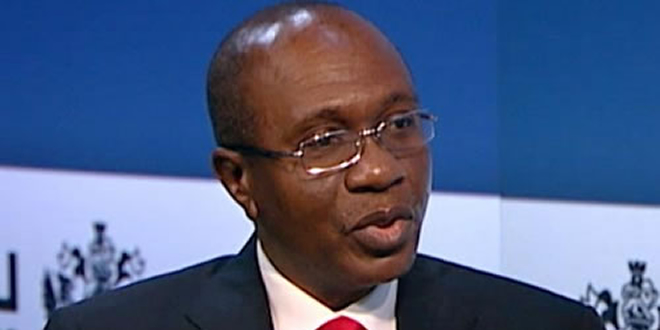Non-performing Loans (NPL) of Deposit Money Banks (DMBs) in Nigeria have risen significantly to N1 trillion in 2015, the Financial Stability Report (FSR) of Central Bank of Nigeria (CBN) has revealed.
The breakdown of FSR recently released disclosed that in 2015, the NPL of the banking industry rose by 78.8 per cent to N649.63 billion as against N363.31 billion recorded in 2014.
The report attributed NPL increase to the continued fall in oil prices during the review period as Bonny Light fell by about 60 per cent to $38.22 last year, leading to government austerity measures and stringent policy by CBN.
The FSR stated: “Non-performing loans, in the period under review, rose by 3.36 per cent to N649.63 billion at end-December 2015, from N628.54 billion at end-June 2015.
“This reflected a 78.8 per cent increase from the N363.31 billion recorded at end-December 2014. The NPL ratio rose to 4.86 per cent from 4.65 per cent. Although the NPL ratio remained within the prudential ceiling of five per cent, it trended closer to the upper limit.
“A few banks had NPL ratio above the regulatory maximum limit of five per cent; however this posed no significant risks to the industry.”
The report added, “The increase in the NPL ratio was attributed largely to the continued fall in oil prices during the review period. For instance, the price of Nigeria’s reference crude, Bonny Light, fell by about 60 per cent to $38.22 at end-December 2015fromUS$62.01at end-June 2015, and this reduced Government revenue and strained fiscal positions.
“Also, at end-December 2015, loans to the oil and gas sector constituted 25 per cent of the gross loan portfolio of the banking system while credit to the sector rose marginally by 2.8 per cent to N3,307.87 billion at end-December 2015 compared to the position at end-June 2015.
“Loans to state governments rose by 33.9 per cent to N1,053.97 billion from N 696.87 billion at end-June 2015.The CBN disbursed N338 billion to 27 states under a special intervention scheme to refinance states’ debts,” the report added.
Business247 analysis on the NPLs of 12 banks between 2014 and 2015 had showed that majority of the banks’ NPLs fall below the CBN maximum regulatory threshold of five per cent while four crossed five per cent.
Among the Tier 1 banks whose NPLs were investigated include, Guaranty Trust Bank Plc, Zenith Bank Plc, FBN Holdings Plc, United Bank for Africa, Access Bank Plc and Ecobank Transnational Incorporation (ETI).
In the Tier 2 category, are Sterling Bank Plc, Wema Bank, First City Monument Bank (FCMB), Union Bank of Nigeria Plc, Diamond bank Plc and Fidelity Bank Plc.
Four banks’ NPL exceeded CBN requirement in 2015. These banks are FBN Holdings which recorded 18.1 per cent in 2015 as against 2.9 per cent recorded in 2014. Union Bank of Nigeria Plc NPL moved from 5.03 per cent in 2014 to 6.67 per cent in 2015.
ETI recorded 8.2 per cent in 2015 as against 4.4 in 2014; while Diamond Bank recorded 6.9 per cent in 2015 as against 5.1 per cent in 2014. For the two years, Fidelity Bank maintained 4.4 per cent NPL.
Only Access Bank has NPL that moved from 2.2 per cent in 2014 to 1.7 per cent in 2015. Zenith Bank Plc and United Bank for Africa Plc moved from 1.75 per cent and 1.6 per cent to 2.18 per cent and 1.7 per cent respectively.
Others are Sterling Bank Plc that recorded 3.1 per cent in 2014 as against 4.8 per cent in 2015 while Guaranty Trust Bank NPL’s stood at 3.21 per cent in 2015 from 3.15 per cent in 2014.
Wema Bank plc and FCMB Group Plc NPL stood at 2.67 per cent and 4.2 per cent in 2015 as against 2.49 per cent and 2.6 per cent recorded in 2014 respectively.
The FSR report, however, warned that, “Credit risk will increase due to threats of further rise in NPLs in the oil and gas sector.
“The CBN will continue to require banks to strengthen their contingency plans and conduct regular stress tests to mitigate the impact of the crash in oil prices on their balance sheets. The CBN has also mandated banks to publish on quarterly basis, in national newspapers, the list of bad debtors in their books to deter delinquent borrowers,” it added.

Comments are closed.